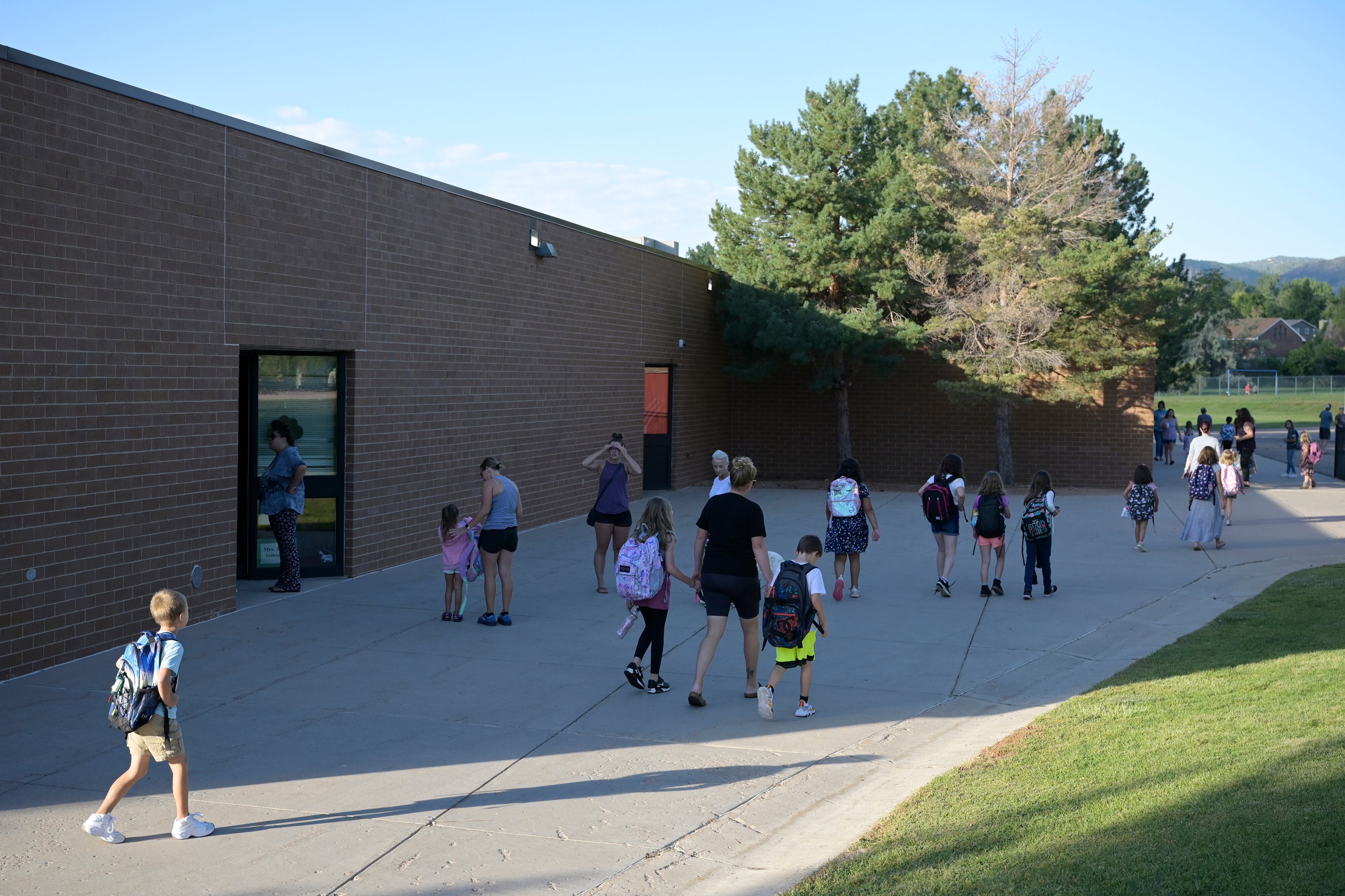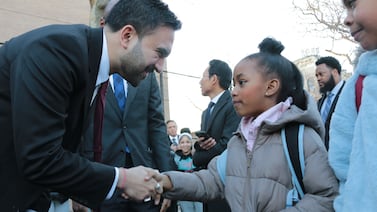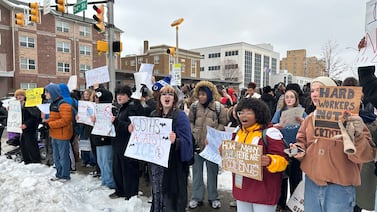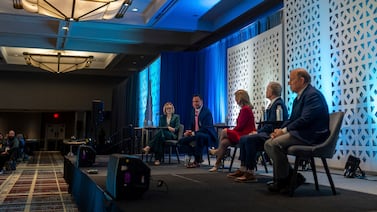Sign up for Chalkbeat Colorado’s free daily newsletter to get the latest reporting from us, plus curated news from other Colorado outlets, delivered to your inbox.
The Jeffco school district is one of only a few large Colorado districts that isn’t asking residents to vote for additional local revenue this election.
The district is under financial strain and in the spring considered asking voters to approve a mill levy override this year, but consultants recommended putting it off. They pointed out the district has faced challenges when trying to pass tax requests, and homeowners are already struggling with a rise in property taxes.
“There are many factors that would support an MLO, including a strong desire for higher teacher pay, but those supportive indicators are simply no match for voters’ current feelings against higher property tax rates,” consultants wrote in a presentation to the board.
Board members identified another challenge: a disconnect between the district and the community in understanding the district’s financial decisions and how schools are funded, leading to trust issues.
Now, the district is taking this year to examine what budget cuts are needed to balance the budget after prioritizing staff raises this year. The district is also working on a long-term facilities plan that could provide a blueprint for future projects.
When the Jeffco school board approved this year’s $1.01 billion budget, paid for in part with $39 million from reserves, board members acknowledged that using district savings won’t be sustainable in the long term.
The district has pulled around $30 million from its reserves to cover its budget for the last couple of years, but without major changes, there likely won’t be enough reserves to draw from as soon as fall 2026, leaders have said.
“At the same time, we recognize the risk to our students if we are not able to compete for talented educators and staff when our neighboring districts can afford higher salaries,” school board president Mary Parker said at the time.
Jeffco negotiated to give teachers about a 5% cost of living salary increase this year as well as a onetime 2% payment from reserves.
This year’s base starting salary for Jeffco teachers of $55,256 is in line with Denver’s starting salary, but still lower than other neighboring districts.
“We have directed Superintendent Dorland to work throughout the 2024-25 school year to identify and recommend structural adjustments to the district budget. Given that our budget is 87% salaries, it will be important for the district to analyze and adjust staffing levels to realities of our declining student enrollment,” Parker said when the budget was approved.
Student enrollment in Jeffco schools has decreased by 7,876 or 9.37% from 2019-20. The district has closed 21 schools in the last several years due to declining enrollment and projections that declines will continue. The number of teachers in that same time period, according to state figures, has only decreased by 5%.
The school closures were not primarily about money, district leaders stressed at the time, but about the resources that could be provided to students at larger schools that can pool more money, since schools receive money based on how many students they enroll.
Still, the closures were expected to cut some ongoing costs, although the effects may be delayed. Immediately after the closures, the district made large investments in the schools that received new students from closed buildings. The district is slowly starting to sell some of the properties.
During public comment sessions at board meetings, at least one community member has criticized the district’s decision to prioritize increasing teacher pay.
“Your reckless teacher pay increase almost certainly locks in a devastating future financial crisis,” Tom Coyne said at a public comment session in June. “Your projections show deficits for the next three years. Some of you said $118 million in projected deficits don’t make you anxious. If I were you, I’d be terrified.”
The last time Jeffco approved a mill levy override that increased its local tax revenue was 2018. A similar request in 2016 failed.
Based on last year’s figures, Jeffco collects approximately $2,074 per student in basic mill levy overrides approved by voters. Jeffco’s voter-approved mill levy override funding is lower than the approximate $3,101 per student Denver gets and the $2,919 per student Boulder’s district collects. Some districts such as Denver have reached the maximum amount they can raise their local revenue through basic mill levy overrides, but Jeffco has not.
That funding is in addition to the base funding, and districts can use it for a variety of ongoing operating expenses, including for staff salaries.
Without voter approval for these rate increases through mill levy overrides, homeowners may pay more in property taxes due to increased home values, but that doesn’t translate into more money for the local schools. Instead, those local taxes, even if they go up, are used toward the calculated base funding the district must reach, and that means the state can decrease its share of how much a district gets toward that base funding.
The Jeffco district is now considering a mill levy override question on the ballot in either 2026 or 2028.
Yesenia Robles is a reporter for Chalkbeat Colorado covering K-12 school districts and multilingual education. Contact Yesenia at yrobles@chalkbeat.org.






